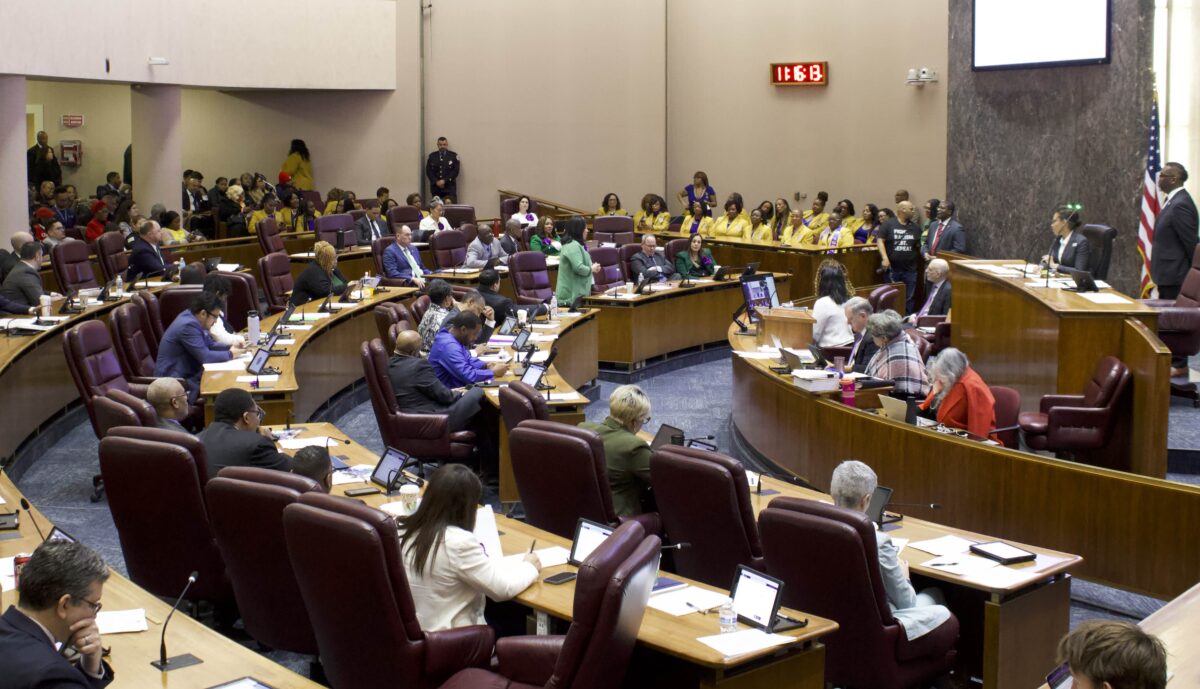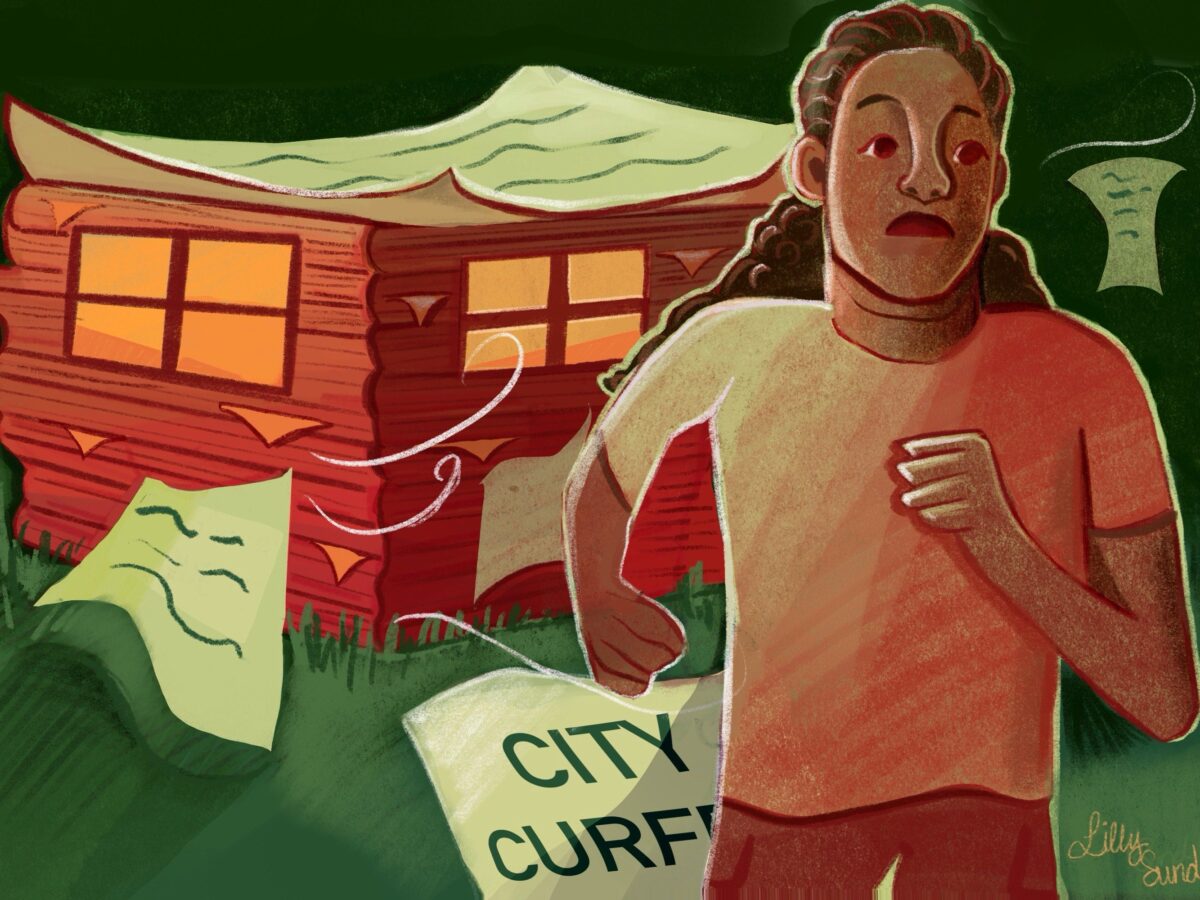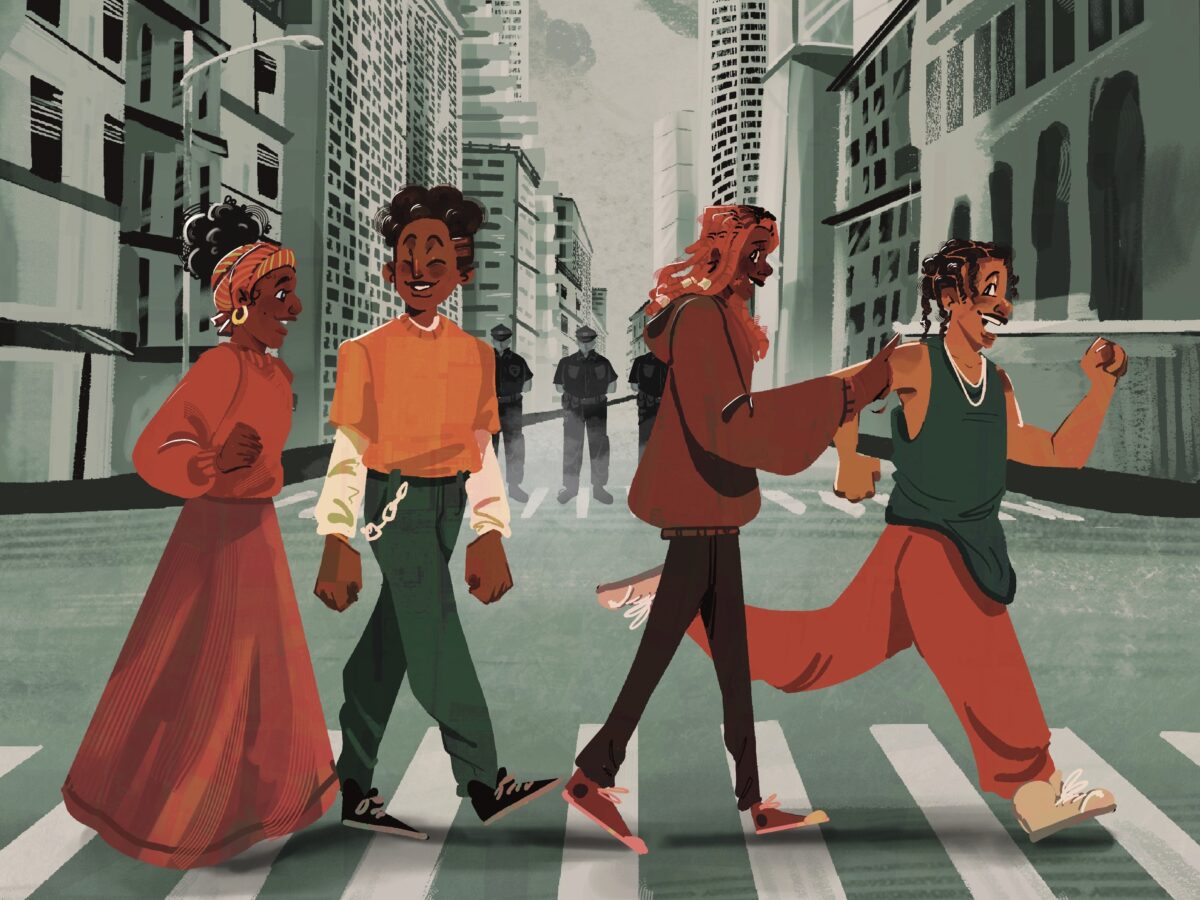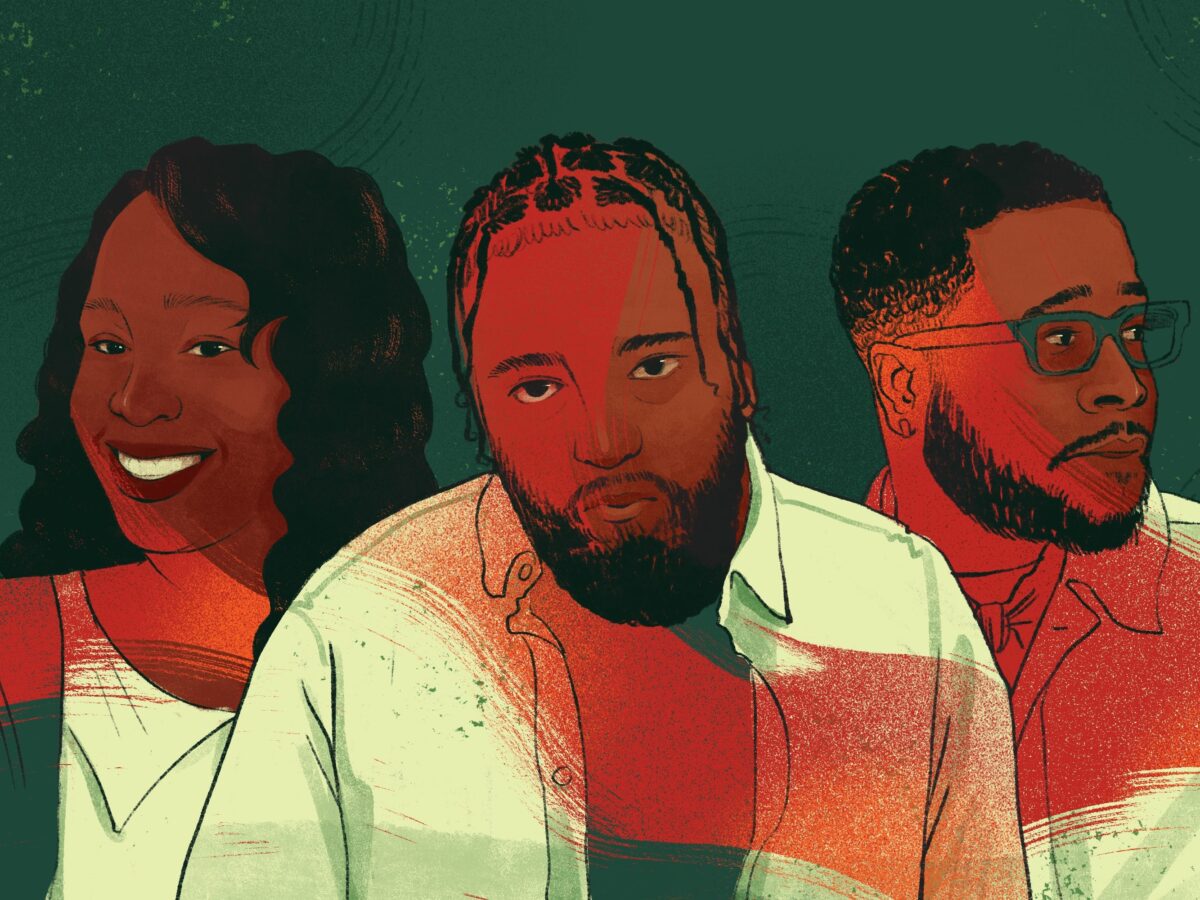Chicago’s police superintendent will not have the power to call snap curfews to address teen gatherings in the city, at least for now. Alderpersons stalled the latest curfew proposal during Wednesday’s City Council meeting, citing concerns over the police department’s ability to unilaterally call the curfew—an earlier version of the ordinance gave that authority to both the police superintendent and the deputy mayor for community safety.
Ald. Brian Hopkins (2nd Ward) sponsored the measure, which would allow police to call a curfew at any time, after recent large gatherings of young people, known as “trends” or “teen takeovers,” turned violent. Mayor Brandon Johnson had opposed the curfew, but opened the door to compromise in April. The citywide curfew is currently set at 10 p.m.
“This is no different than what happens in the military, where we have civilians and actual members of that community jointly having to do something in order to affect something happening,” Ald. Jason Ervin (28th Ward) told reporters after Wednesday’s meeting. “So I supported that belt-and-suspenders approach.”
Ervin and Ald. Andre Vasquez (40th Ward) delayed a vote on the measure using a parliamentary procedure known as “defer and publish.” In an unusual move, fifteen other alderpersons joined Ervin and Vasquez in pushing for the D&P, which only requires two council members. The delay punted a vote on the curfew measure to next month.
The support of seventeen alderpersons for the delay could signal that Hopkins would have trouble finding the thirty-four votes he needs for a veto-proof majority. Johnson has reiterated his trepidation around the curfew ordinance, questioning its constitutionality. But Johnson told reporters Wednesday that it was too early to decide whether to veto the ordinance, instead saying he would let the matter play out in City Council.
“I think it would be irresponsible if I were to speak in advance of the entire democratic process that’s before us,” Johnson said. “The City Council deserves the right to be able to have their particular responsibility respected and you know to the alders that have made it very clear that they don’t see this as a tool that will be effective. They will have the ongoing responsibility and task to continue to work through that disagreement with their colleagues. I will be in position to respond once that process unfolds.”
Hopkins expressed optimism that the opposition still leaves him with more than twenty-six alderpersons who support the ordinance. He also clarified the curfew differs from a dispersal order, which is a criminal law that results in an arrest.
“We don’t want to do that. We want a better alternative. Enforcing a curfew violation does not result in an arrest,” Hopkins said. “The young people are simply taken out of a dangerous situation, brought to a safe environment, i.e. the local police station, and held there until a parent or guardian picks them up. They’re not booked, they’re not fingerprinted, there’s no arrest file that’s created. They’re simply released to a responsible adult. The alternative is to issue a dispersal order and then make arrests when that order is ignored.”
The Chicago Police Department did not answer the Weekly’s request on what additional powers the curfew ordinance would give officers.
Both Hopkins and the ACLU of Illinois confirmed that they had not met to discuss the ordinance, though ACLU Illinois spokesperson Ed Yohnka told the Weekly that they had offered to meet but did not receive a response. The civil rights organization remains opposed to the measure.
“It remains too vague and places too much power in the hands of the superintendent. It remains unclear how anyone can reasonably know when or where the ordinance will be enforced,” Yohnka said in an email to the Weekly. Yohnka added that some teen takeovers had been thwarted using existing powers. “That suggests that our opposition that this is unnecessary has been correct all along.”
Meanwhile, City Council members tussled over the latest multimillion-dollar police misconduct settlements. Council passed a $5 million settlement for Briana Keys, who lost both her legs from frostbite after police officers failed to respond to her calls for help. Thirteen alders cast nay votes, expressing sympathy for Keys while arguing it set a precedent for a slew of expensive settlements.
“We have to learn to say no. We have to learn that some situations or tragedies are not necessarily our fault,” said Ald. Ray Lopez (15th Ward). “We cannot do this. Because we know that there are hundreds of other settlements that are coming down the pike. And by continuing down this path of creating a whole new cottage industry of unscrupulous lawyers to take advantage of, we are putting taxpayers at risk for generations.”
Ald. Pat Dowell (3rd Ward), who oversees settlements as chair of the finance committee, urged compassion from her colleagues.
“If this was your mother or your sister and the police rolled up on her, and she’s standing out there without her shoes in the snow, in five degrees…what would you want them to do?” Dowell asked. “You would want them to call the ambulance. You want to take her to the hospital, even if she didn’t want to go. That did not happen in this case. So we can talk about, ‘We don’t want to take these settlements,’ but this is a settlement that we should all be a unanimous ‘yes’ on.”
Alderpersons were divided 35-14 over another settlement, which awarded $8.2 million to John Velez, who spent sixteen years in prison for a fatal shooting. Velez’s lawyers allege that police fabricated evidence. The City Council rejected the settlement last July, forcing the city’s lawyers to go back to the negotiating table with Velez. That ended up increasing the cost of the settlement by $600,000.
During the council meeting, Ald. Anthony Beale (9th ward) claimed that the extra cost was incurred by outside lawyers. When asked whether the higher price came from outside lawyers, the mayor’s corporation counsel, Mary Richardson-Lowry, clarified that the negotiation increased the cost.
“There will be some fees factored in there,” she said. “But ultimately the analysis that we engage in, we also talk to outside counsel as well as opposing counsel, and they came back at an increased number because we thought this particular case was more appropriate to settle than to try.”
Arguments over police misconduct settlements have become a regular occurrence at City Council, which is grappling with the ballooning cost of lawsuits against the city. By May, the city had already blown past the $82 million it set aside for settlements.
In addition to the police misconduct settlements, the council also approved a $15.5 million settlement for the private firm that handles Chicago’s infamous parking meter deal. Chicago Parking Meters LLC brought a lawsuit against the city after Mayor Lori Lightfoot suspended meter enforcement at the onset of the COVID-19 pandemic.
During Wednesday’s press conference, Richardson-Lowry, warned everyone to buckle up for more settlements.
“The vast majority of our matters do get tried, but there are categories of cases that are in the interest of the city to settle. There are cases that were not allowed to be heard during the COVID period because, as each of you knows, during that period the court systems were shut down. Those cases are coming due,” Richardson-Lowry said. “So, I want all the court and the general public to get ready because we’re going to have more settlements. It’s the responsible thing to do.”
Leigh Giangreco is a freelance reporter based in Chicago. You can follow her work on Twitter/X @LeighGiangreco and at leighgiangreco.com.





